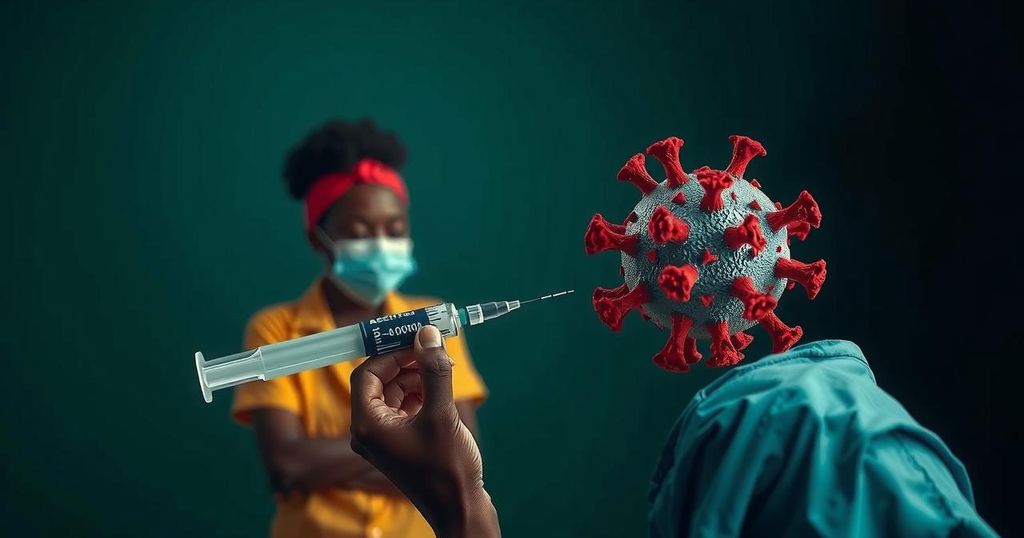The WHO announced that more than 50,000 people have been vaccinated against mpox in the Democratic Republic of Congo and Rwanda. The outbreak has claimed over 1,100 lives in Africa, prompting warnings of a potentially severe pandemic exceeding the impact of COVID-19. The vaccination efforts are significantly supported by international donations as further allocations of vaccine doses are planned for the future.
The World Health Organization (WHO) reported on Friday that over 50,000 individuals have been vaccinated against mpox, previously known as monkeypox, in the Democratic Republic of Congo and Rwanda. The outbreak has resulted in more than 1,100 fatalities across Africa, raising concerns from the African Union’s health agency regarding the potential for a new pandemic that could be more severe than COVID-19. Despite the ongoing vaccination efforts and the recognition of mpox as a critical public health issue, the epidemic remains uncontained, with approximately 48,000 cases confirmed in the region since January. The majority of these deaths have occurred in the DRC, where vaccination initiatives commenced last month. WHO Director-General Tedros Adhanom Ghebreyesus acknowledged the support received for the vaccination campaign, stating that “more than 50,000 people have been vaccinated against mpox in the Democratic Republic of Congo and Rwanda, thanks to donations from the United States and the European Commission.” He further indicated that nearly 900,000 doses of vaccines have been allocated to nine countries, marking the initial phase of distributing almost six million vaccine doses expected by the end of 2024 through the Access and Allocation Mechanism (AAM). Mpox is caused by a virus that can be transmitted to humans from infected animals and can also spread from person to person through close contact. The disease, which shares similarities with smallpox, manifests through symptoms such as fever, body aches, swollen lymph nodes, and a rash that develops into painful blisters.
Mpox is an infectious disease caused by the monkeypox virus, which has predominantly affected Africa, particularly the Democratic Republic of Congo (DRC). The disease transmission occurs through contact with infected animals or humans. Recent outbreaks have raised alarms regarding its severity and potential to evolve into a more dangerous pandemic. Health officials are emphasizing the importance of vaccination and containment measures to avoid a crisis comparable or worse than COVID-19. Vaccination efforts are supported by international donations, reflecting a global response to emerging infectious diseases.
In conclusion, the vaccination against mpox in the Democratic Republic of Congo and Rwanda has reached over 50,000 individuals, signifying a critical step towards controlling the outbreak. With over 1,100 deaths reported in Africa, the urgency for resource allocation and effective public health strategies is paramount to prevent a potentially more severe pandemic. Collaborative efforts, including donations from international partners, are essential for the successful management of mpox and safeguarding public health.
Original Source: www.france24.com






